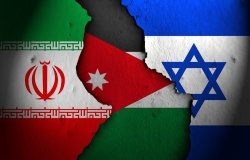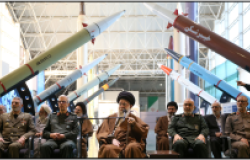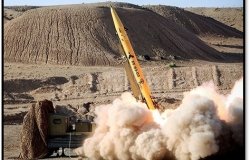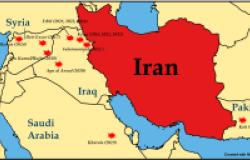The Albanian National Question and Balkan Security
Elez Biberaj, Chief, Albanian Service, Voice of America
Overview
Staff-prepared summary of the East European Studies discussion with Elez Biberaj, the Chief of Voice of America's Albanian Service.
Elez Biberaj, back from a lengthy tour of the Albanian-speaking regions of Southeast Europe this past summer, provided a comprehensive view of the political, social and economic situation in the three main areas under consideration - the state of Albania itself, the province of Kosovo (now under UN administration but still formally a part of Yugoslavia), and the western region of Macedonia (populated mostly by ethnic Albanians and centered around the regional city of Tetovo).
Dr. Biberaj addressed the central question of whether a "greater Albania" is in the making with a resounding no and then qualified his opinion with the caveat "at least not in the immediate future." In outlining the political situation in each of the three entities he emphasized that in none of them is there at this time a strong move to create a greater Albania, nor is there the political will or even the ability to make this happen, even if the parties wanted to, which they do not.
Dr. Biberaj briefly outlined the poor treatment that the Albanian population received in the various parts of the former Yugoslavia - particularly in the autonomous province of Kosovo within Serbia but also, to a lesser extent, in Macedonia. In both republics, he noted, there was a "history of domination and harsh repression" which gave the Albanian population little incentive to want to remain within these countries.
Addressing the situation in Kosovo specifically, Biberaj underlined that after nearly three years of administration by UNMIK, the UN protectorate mission in Kosovo, the Albanian population had not altered its basic desire for independence. He stressed that in his view independence is the only solution for Kosovo and that no other alternative can work - whether it be partition or a loose association with Yugoslavia.
In Macedonia the Slav Macedonians, with some justification, correctly fear the Albanians as the biggest threat to the integrity of their country since Albanians make up as much as 1/3 of the population with most centered in the northwest part of the state bordering Kosovo. But, Biberaj stressed that western Macedonia is not viable as an independent state now or for the forseeable future. In addition, the state of Albania is so weak that it is not in the position to play the "mother country" or unifying role for a theoretically greater Albania.
On a positive note, he singled out the change in views of the current leader of the ethnic Albanians in Macedonia, Ali Ahmeti, the leader of the armed insurrection movement in 2001. Ahmeti is currently committed to a unified Macedonia and his political party is part of the new coalition government with the Slav-dominated social democrats.
Summarizing his findings, Dr. Biberaj stressed that while the Albanians in the Balkan region do not speak with one voce it would be a mistake to exaggerate their differences because there is more that unites them than divides them. Turning to specific recommendations, Biberaj stressed that stability in the region would be significantly fostered if the international community were to address the question of "final status" or independence for Kosovo sooner rather than later. The Kosovar Albanians want independence right away, but the international community thinks it can postpone this issue indefinitely. The U.S. must take a leading role here to try to put the future status of Kosovo on the front burner because this is a matter that cannot be left to the Europeans. Finally, Biberaj suggested that the best way to begin to overcome problems, distrust and hatred between ethnic Albanians an their neighbors in Yugoslavia, Macedonia and other areas is to begin a process of regional integration and to reestablish economic, transportation, cultural and other ties.
Hosted By

Global Europe Program
The Global Europe Program is focused on Europe’s capabilities, and how it engages on critical global issues. We investigate European approaches to critical global issues. We examine Europe’s relations with Russia and Eurasia, China and the Indo-Pacific, the Middle East and Africa. Our initiatives include “Ukraine in Europe” – an examination of what it will take to make Ukraine’s European future a reality. But we also examine the role of NATO, the European Union and the OSCE, Europe’s energy security, transatlantic trade disputes, and challenges to democracy. The Global Europe Program’s staff, scholars-in-residence, and Global Fellows participate in seminars, policy study groups, and international conferences to provide analytical recommendations to policy makers and the media. Read more
Thank you for your interest in this event. Please send any feedback or questions to our Events staff.










